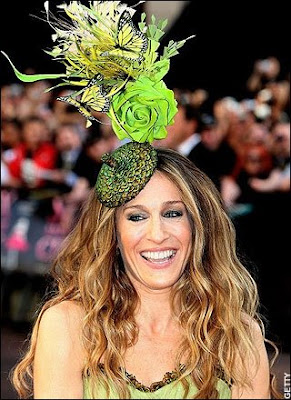What's Jack up to? He's having a field day barking at all the folks walking by since this is the week of the town Firefighters carnival (did I tell you I now live in Mayberry) which is not far from our house. Jack's in bark heaven putting me in headache hell. UGH!

So I told you she'd be back and here she is and not just back one more time, but my fab agent Elaine Spencer from the fab
Knight Agency has agreed to allow me to make
Ask The Agent a regular feature on my little blog! Woo Hoo!!
So after today look for a new question or two to be answered here every week! Please just post your questions in the comments section and check back to see if yours was answered. I think I'll make Friday the day I post Elaine's answers. I know being a pre-pubbed my self I just love all this insider info. I hope you do to. Thanks so much Elaine. We so heart you!!
This week Elaine has banged out many more questions from the original batch and here are her answers. These are some good ones ya'll enjoy!
What do you think are the key elements within the author's responsibility in the marketing plan?
The number one thing that people need to realize going in is that books don’t sell themselves these days. As an author it is your responsibility to have a plan, the days are gone when a publisher’s marketing department can afford to donate a ton of effort to all authors in the earlier stages of their careers.
The biggest place that an author can grab control of their marketing plan is out on the web. Build a presence, build a fan base, camaraderie sells books. The Internet is a free tool that millions of readers access every day, therefore it’s equally important for authors to embrace it. With e-commerce as popular as it is, and sites such as amazon.com contributing to sales numbers, it only makes sense that these same buyers will be out and about on the Internet searching for information and reviews for their next purchase.
I think that the key word in your question is plan. The most important element for a newer author is having a plan and sticking with it. Gather an idea of your target audience and then allocate your resources to best hit that group. I think you need to know up front a basic dollar amount that you are planning on spending, and then determining how you can get your agent/publisher/writing groups to throw in additional support be it via dollars (publisher) or word of mouth (agent/friends).
Do your research ahead of time and have an idea of how you want to see your title promoted. Then go out do research and just look around to see who is doing what you want to do, and how are they accomplishing it.
However, it is important to remember that while Marketing is important, it is in no way a sure bet. I know lots of authors that have spent countless hours and high dollar amounts to promote a book that in the end flops. Unfortunately there isn’t a key to success (or lots of us in this business would be much, Much, wealthier). I have heard many authors in the top-tier of the industry remind folks that at the end of the day the way that they got where they are now was through hard work and producing a quality product
I'm interested in how marketable a contemporary sexy (but not full on erotic) romance written in a light/humorous tone would be. Regardless of trends, is this genre still healthy? I ask because we are always hearing about the hot erotica market, but what about the contemporary romance that doesn't close the bedroom door, but also doesn't get extreme.
I think that there is a large opening in the market right now for the contemporary sexy romance. Over the past several years there has been a huge influx in the market in terms of the availability of erotic novels. When publishers saw reader’s positive reactions and demand to this material (which had previously been largely limited to online publishing venues) they jumped onto the erotica publishing band wagon.
For a period of time all we heard from editors was HOT, HOT, HOT. If a project didn’t fall into this category, no dice. Now, after several seasons, there is much more erotica available in print and online, leaving readers’ bedside tables with a constantly growing pile of TBRs. Now that the gap has been filled, I believe that the super-charged demand we’ve seen in the recent past for only erotic manuscripts is slowing down.
Yes, there are going to be many editors and readers that are going to continue to want high-quality stories in that genre, and I believe it will continue to sell strongly. However, I think there is a certain leveling of the field going on. Many readers still crave a story that is just a bit more conservative, the super-spicy doesn’t work for them. In turn more and more editors are asking for manuscripts that run the gambit, they want some that satisfy the romance reader’s need for romance, sensuality, love and passion, but that don’t push the limits, and then they also are looking for the page turner that is sure to sizzle.
How much do freelance editorial credits figure into your decision to take on a writer? Also, do you think they influence acquiring editors and advances?
I don’t look at freelancing at all unless it directly relates to the market for the book that is being pitched to me. Yes, we need strong writing, but strong writing is nothing without a strong story.
I have seen many manuscripts from “professional” writers that bore me to tears and leave much to be desired in regards to plotting, pacing, characterization, conflict etc.
Now, don’t get me wrong, this type of information doesn’t turn me off to a writer, it just doesn’t particularly turn me on. I would venture to say that this is true of most editors as well.
**Disclaimer, I answered this from the perspective of an agent that deals largely with fiction projects, and the fact that I believe most of this blog’s readers are also fiction writers. Depending on the situation/project/proposal I imagine the exact opposite might be true for non-fiction projects.
Elaine, I used to hear that if you were contracted with an e-publisher, agents wouldn't look at your work. Now it seems like I'm seeing a number of writers moving from the e-publishing world to big NY houses. Does being published by a small press or an e-publisher help or hinder a writer's effort to attract interest from an agent and from a mainstream publisher?
I think the trend of moving from E-pub to NYC took off a little more than three years back and hasn’t slowed a bit. As it gets harder and harder to find that editor/agent that is willing to take a chance on an unknown and the market seems to be slimming for new talent, the e-publishing world will continue to draw many high caliber writers that just want to break in.
I think that being e-pubbed can be a great foundation for certain authors and can certainly get them the attention that will take them to the next level and actually break out. There is one catch here, the only one that I think authors need to be careful of in regards to a negative impact their career.
As the popularity of e-publishing has grown, in certain instances(and I do NOT say this to be insulting), the standards have lessened. It is important that an author is familiar and comfortable with the e-publisher that they sign up with. That they know of the practices and images that they are going to be associated with by making the connection.
In the end, I feel much the way about e-pubbing as I do about many other issues that unrepresented authors seem concerned with (i.e websites, contests, freelance writing, etc), at the end of the day the proof is in the pudding. These factors typically play little into my decision to sign on a new client – bottom line it’s the story that counts. Being previously e-pubbed may help you, it may hurt you, but generally it bears no consequence.
(and this was a VERY abbreviated answer to a question I could go on at length about in terms of the pros/cons of e-pubbing, trying not to bore anyone to tears )
How do you (and editors you work with) feel about first person present for a chick-lit style book?
No problem with it here. I think that the first person POV is pretty much par for the course when dealing with this type of project.
It works well and creates an immediate and intimate view into the characters life which is essentially what this story is going to focus on.
Isn't chick lit dead? Books that have a chicklitty voice need to be "branded" women's commercial fiction or whatnot. They still work well in first person present tense, I think, but they can't be called by the VERBOTEN label.
Yes, it does seem that “chick-lit” has been branded a dirty word over the past few years. However, the stories definitely still work and still sell. Over the past few months I have heard innumerable professionals say that they are looking for these types of manuscripts.
Here’s the thing, the story can be 100% chick-lit in tone, BUT, the story needs to be a bit evolved. The typical “girl in the city with a gay best friend who just lost her job as a personal shopper on the same day as her fiancé dumps her” won’t work. Editors are still looking for stories that appeal to this demographic of readers, but they are demanding a bigger hook, the much-dreaded “higher-concept”.
Once the project sells how it will be branded and marketed is entirely up to the publisher but it will most likely have a bit more of a grown up feel and look. However, lets not be oblivious here, a leopard without its spots is still a leopard. All editors and agents do all day is read material in their field of specialty. If you send an editor a chick-lit book that’s dressed up as an “up-market light commercial women’s fiction” manuscript, within about ten seconds and one paragraph they are going to know what they are dealing with. No one is fooling anyone!
My point? It is more important than ever that you nail the story and voice straight on so they get over the issue of if chick-lit is dead or not and look instead because they see the potential for a great story.
When you are ready to offer representation, is it usually before or after you request some edits or changes? In other words, would you generally tell a potential client that you want to see the book after X, Y, and Z have been tweaked and THEN you'll discuss sending a contract, or would you generally take that client and put her/him under contract and THEN send an editorial letter? I've had both of these things happen, and was just wondering which one is more common. Of course, the agent I made all these tweaks (improvements, all, I thought) for didn't take me on, and the deal-breaker was that I didn't do ONE of the changes because I thought it would ruin the ending, and I asked that we talk about it further . . . but no, that was the end of that one. *sigh*
This totally depends on how hot *I* feel the project is. If its something that I see potential in, and might be interested in if that potential was developed I’ll ask for revisions and a resubmit.
That is how most agents practice. Now as a result I can tell you I’ve suggested revisions that an author has taken and made and then they have sent/signed with another agent before giving me another shot. Why you ask? Well, because I already turned them down once (this does not make Elaine happy). But, this is the risk we take.
Why do we take this type of risk? Why put our time and our opinions on the line without a commitment? When I sign a client it is for the long-haul. I hope to stick with them through the thick and the thin and I have to know that I’m totally confident in their abilities up front. I have to know that I am going to end up with a product that I believe in. If not we would just be spinning our wheels, flipping client lists season by season, this is extremely ineffectual process.
I have had instances where I’ve read a flawed manuscript but still fallen in love. If I know that it will be a project I’ll regret not having should it get away, hell yeah I’ll put all my eggs in one basket and sign them on up front. It’s a gamble, but its gamble that is totally worth taking when you KNOW it’s the one (and you usually know that others are going to KNOW it’s the one immediately upon reading as well).
In this case, the potential client and I only partner after we thoroughly discuss what we are thinking in terms of revisions. We have to be on the same page and foot starting off or there’s no way that the revisions will make an ounce of difference.
Whew! See why I heart her!
This was such a great round. Thanks so much to all of you and thanks again Elaine. Don't forget to leave your questions and check back here weekly to see what's answered. Happy writing everyone. Let's all LIVE OUR DREAMS!!!
Best,
Kwana












































 Best,
Best,













 So it was goodbye to my spunky little Marissa on Dancing with the Stars. I know she annoyed quite a few this season with all that darn exuberance, but she always made me smile. Buh-Bye Marissa! Good luck with the baby!
So it was goodbye to my spunky little Marissa on Dancing with the Stars. I know she annoyed quite a few this season with all that darn exuberance, but she always made me smile. Buh-Bye Marissa! Good luck with the baby!  Best,
Best, And they have quite a fan club over on Youtube there are even fan videos. Check out this one that will make you believe in this love story:
And they have quite a fan club over on Youtube there are even fan videos. Check out this one that will make you believe in this love story:



















